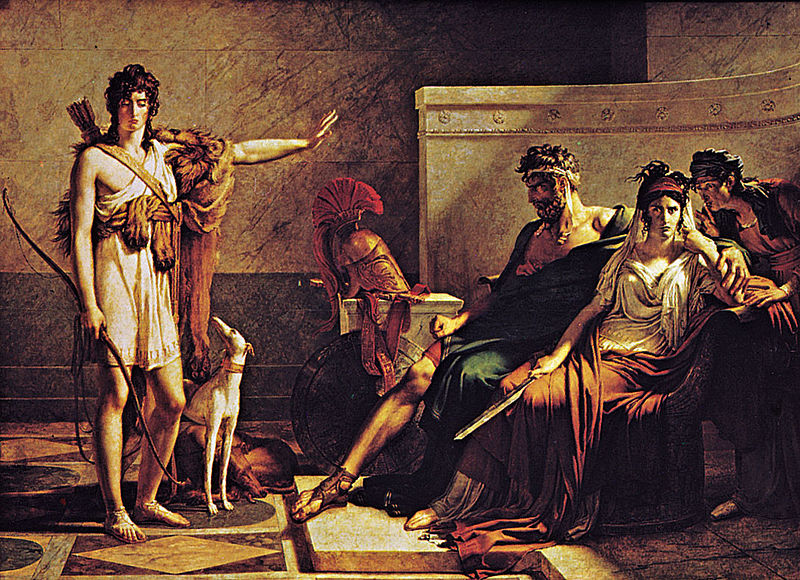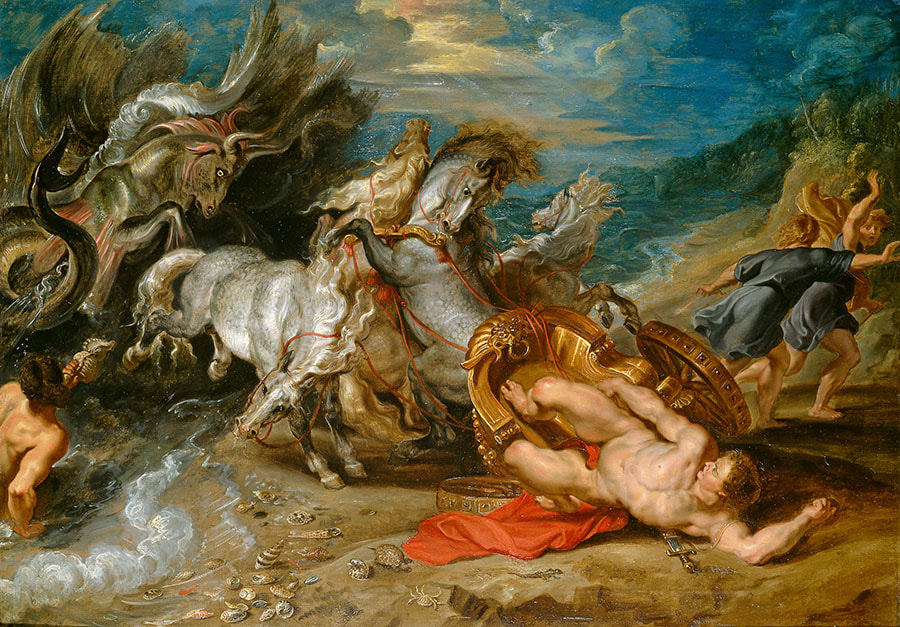HIPPOLYTUS IN GREEK MYTHOLOGY
Hippolytus in Greek Mythology
In Greek mythology, Hippolytus was the son of the Greek hero Theseus. Hippolytus would be sent away from Athens by his father, and ultimately, Theseus would bring about the death of his own son, after false accusations were made about him by Phaedra.
Hippolytus Son of Theseus
Hippolytus was the son of Theseus, King of Athens, born to one of two Amazon queens, either Antiope or Hippolyta.
The name Hippolytus can be taken to mean “destroyed by horses” which would make it a prophetic name given to the son of Theseus.
The name Hippolytus can be taken to mean “destroyed by horses” which would make it a prophetic name given to the son of Theseus.
Hippolytus in Troezen
|
Later, Theseus would marry Phaedra, daughter of Minos, and Hippolytus was sent away from Athens, to nearby Troezen, where he was mentored by Theseus’ grandfather, Pittheus.
Hippolytus grew into a handsome man and a follower of Artemis. As a devotee of Artemis, Hippolytus decided to remain chaste, spurning all women and love. This greatly affronted Aphrodite, the Greek goddess of Love, who now sought revenge. |
|
Aphrodite would curse Phaedra that she fell in love with her stepson.
Phaedra's Accusation
Initially, Phaedra built a temple to Aphrodite upon the Acropolis, from which she could look out across the Saronic Gulf, to look at Troezen.
As Phaedra’s desire for Hippolytus grew then her love for Theseus’ son was revealed; either with Phaedra directly trying to seduce Hippolytus, or because Phaedra’s maid revealed her secret to Hippolytus.
In either case, Hippolytus was serious about his vow to remain chaste, and Phaedra was rejected.
Some tell of Phaedra telling her husband, Theseus, that Hippolytus had tried to rape her, and then committed suicide, or else she left a suicide note, in which she said she had been raped.
As Phaedra’s desire for Hippolytus grew then her love for Theseus’ son was revealed; either with Phaedra directly trying to seduce Hippolytus, or because Phaedra’s maid revealed her secret to Hippolytus.
In either case, Hippolytus was serious about his vow to remain chaste, and Phaedra was rejected.
Some tell of Phaedra telling her husband, Theseus, that Hippolytus had tried to rape her, and then committed suicide, or else she left a suicide note, in which she said she had been raped.
The Death of Hippolytus
|
Theseus believed that Hippolytus had indeed raped his wife, and so Theseus prayed to Poseidon, who some say was Theseus’ father. Some say that Poseidon had agreed to fulfil three prayers from Theseus, and some say that, in this case, Poseidon just agreed to do what Theseus asked of him.
What Theseus asked of Poseidon was that Hippolytus was to be killed. Thus, when Hippolytus was driving along the coast road from Troezen to Argos, Poseidon sent a sea-monster, or gigantic bull, from out of the sea, panicking the chariot’s horses, cause the chariot to crash, and for Hippolytus to be killed. |
|
Hippolytus Resurrected
The story of Hippolytus does continue in Roman mythology, for it was said that Artemis wanted her devotee resurrected after his death; something which was then accomplished by either Asclepius or Aphrodite.
Hippolytus was then brought to Latium in Italy, where he was known as Virbius, and worshipped alongside Diana (Artemis) at Arcia.
Hippolytus was then brought to Latium in Italy, where he was known as Virbius, and worshipped alongside Diana (Artemis) at Arcia.
|
|
Colin Quartermain - Hippolytus - 29th February 2020

